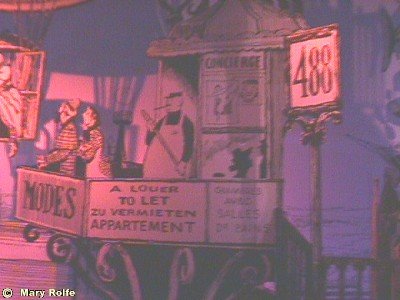
Horizons

I suppose the fact that Robida was one of the main contributors to the magazine he also edited, La Caricature, can partly explain why he was so attuned to the media and the future, and was able to anticipate so many aspects of what lay ahead. He dreamed of the pay phone, not just those we are familiar with now, but also the video pay phone. He anticipated the importance of aerial warfare, tanks, submarines, and chemical warfare -- so accurately that a 1916 book appeared during the first World War with the title Un caricaturiste prophete (A prophetic caricaturist), showing how many of his prophecies had already been fulfilled by that time.Rediscovering the Future by Edward Tenner: "Verne's evident mastery of technical detail, his ability to extrapolate from the science and engineering of his time, suggests that at least this kind of expertise is important in predicting the future of media. But I am not sure of even this. Verne, scientifically literate though he was, was a lawyer and stockbroker by training. His Parisian contemporary, the artist and satirist Albert Robida, had much less technical knowledge and predicted even more accurately the news media of the twentieth century. In 1883, for example, a book of Robida's featured a television reporter of 1963 on the scene of a guerrilla war in North Africa, as seen by a family watching a life-sized, flat, wall-mounted color display."
Okay, let's go have some fun.
Magic Kingdom | World Showcase | MGM
Pansoph's homepage | Pansoph's Art Gallery | Tower Case of Terror | Pansophilosophy
Titanic's blue necklace | The Squash that took over the Lilac
All images on this site are © by Mary Rolfe/Pansophist at http://www.pansophist.com/